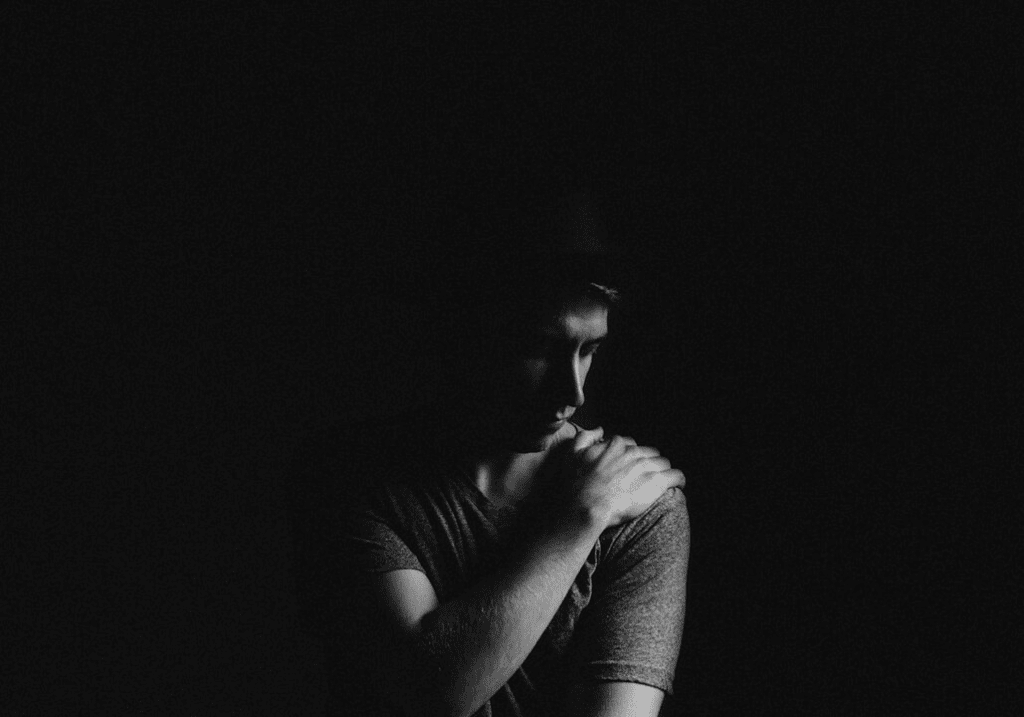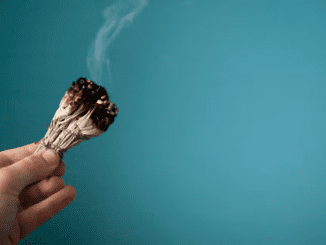For millions of people, the moments before sleep can be filled with heightened anxiety. What should be a time for rest often turns into a struggle, as anxious thoughts creep in and intensify during the night. Mental health experts have offered several explanations for why anxiety worsens just before sleep, shedding light on the various factors that contribute to this common experience.

1. Lack of Daytime Distractions
During the day, our minds are typically occupied with work, social interactions, and other tasks. These distractions can help keep anxious thoughts at bay, allowing us to focus on the immediate tasks at hand. However, as behavioral psychologist Professor Ivo Vlaev explains, “Anxiety tends to worsen at night… because of the change in environment and mental focus.”
At night, these distractions fade away, leaving room for reflection. What may have seemed like minor concerns during the day can suddenly become overwhelming. The stillness of the night often leads to rumination, where small worries spiral into bigger problems. Without anything else to focus on, our minds tend to dwell on unresolved issues, amplifying anxiety and making it harder to sleep.
2. The Role of Physical Fatigue
By the time night falls, both mental and physical exhaustion can set in. While one might expect that being tired would help in falling asleep, fatigue can actually weaken our emotional regulation. Professor Vlaev highlights that “Fatigue impairs emotional regulation, and by the end of the day, coping mechanisms are often weaker.”
When we are mentally drained, we are less capable of managing stress effectively. This weakened emotional state can make it harder to push away anxious thoughts. Rather than drifting off into a peaceful sleep, we may find ourselves replaying the day’s events or worrying about future challenges, further feeding the anxiety.
3. Hormonal Fluctuations and Cortisol
Hormones play a significant role in why anxiety spikes before bedtime. One hormone in particular, cortisol—often referred to as the “stress hormone”—can be a major contributor to nighttime anxiety. Cortisol levels naturally fluctuate throughout the day, typically rising in the early morning hours to help us wake up. However, for people dealing with chronic stress or anxiety, cortisol levels may remain elevated at night, keeping the brain in a state of heightened alertness.
Clinical psychologist Charissa Chamorro explains that anxiety can cause increased levels of cortisol and adrenaline, which disrupt the body’s ability to relax. “When cortisol doesn’t follow its natural rhythm, it can cause difficulties in falling asleep or staying asleep,” Chamorro notes. For individuals who already struggle with anxiety, these hormonal imbalances can exacerbate nighttime stress and make it even harder to unwind.
4. Fear of the Dark and Lack of Control
Another factor that can contribute to heightened anxiety before sleep is the environment itself. Darkness, quietness, and solitude can trigger feelings of unease, especially for those with preexisting anxiety. According to a study in the International Journal of Psychophysiology, even individuals without anxiety disorders tend to have stronger fear responses to stimuli at night.
Vlaev points out that “Nighttime brings about a feeling of loss of control… the sense of waiting for sleep and not knowing when it will come can make people feel helpless.” This loss of control, coupled with the quiet darkness, can amplify feelings of anxiety. As the night wears on, the pressure to fall asleep grows, often intensifying anxious thoughts.
5. The Vicious Cycle of Anxiety and Sleep Deprivation
Anxiety and sleep deprivation are often intertwined in a vicious cycle. When anxiety keeps you up at night, it leads to disrupted sleep patterns. After several nights of poor sleep, you may start to dread going to bed, fearing that another restless night awaits. This fear itself can increase anxiety, creating a self-fulfilling prophecy.
As Chamorro explains, “Several nights of high anxiety and disrupted sleep may lead to negative expectations about sleep, which can further hurt sleep.” Additionally, daytime habits such as consuming caffeine late in the day or spending excessive time on electronic devices can further disrupt sleep hormones, making it even harder to break the cycle of anxiety and insomnia.
6. Understanding and Managing Nighttime Anxiety

While nighttime anxiety can be overwhelming, understanding its underlying causes can help manage it more effectively. Experts recommend making small adjustments to your daily routine to reduce the intensity of nighttime anxiety.
One key recommendation is to cut back on caffeine, especially in the afternoon and evening, as it can increase anxiety and interfere with sleep. Instead, try incorporating relaxation techniques into your pre-sleep routine. Whether it’s deep breathing exercises, meditation, or progressive muscle relaxation, these methods can help soothe both the mind and body, creating a sense of calm before bed.
Vlaev also suggests creating a consistent nighttime routine to combat anxiety. “Anxiety thrives in the absence of distractions,” he explains. Having a set routine, such as turning off screens an hour before bed, dimming the lights, and reading a book, can help signal to your brain that it’s time to relax. These small changes can make a significant difference in reducing late-night anxiety.
Conclusion: Finding Peace Before Sleep
Nighttime anxiety is a common struggle for many people, but it doesn’t have to take over your evenings. By understanding why anxiety tends to peak before bed—whether it’s the lack of distractions, physical fatigue, hormonal imbalances, or environmental triggers—you can take proactive steps to manage it. Implementing calming routines, reducing stimulant intake, and focusing on relaxation techniques can all help in minimizing anxiety before sleep.
Ultimately, improving your sleep hygiene and addressing the root causes of nighttime anxiety can lead to more peaceful and restful nights.


